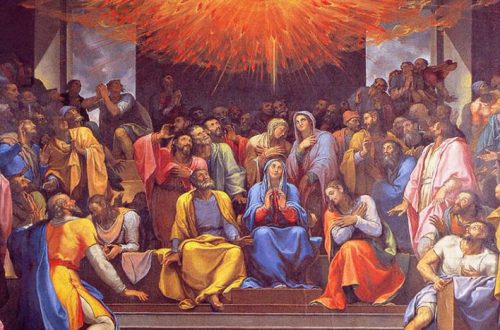Continuity and Advance
Seeing God’s redemptive plan as being characterized by continuity and advance
Sam Storms is the Lead Pastor for Breaching and Vision at Bridgeway Church in Oklahoma City, Oklahoma. In his November 1, 2017 blogpost, he asks, “Replacement theology or inclusion theology?”
A central issue to this question is the relationship between Israel and the church. As Storms notes, the query concerns a “massively complex subject.” In this regard, some interpreters heavily stress the discontinuity between the Testaments, including Israel and the church. Against this backdrop, Storms’ major claim is that the “church doesn’t replace Israel.” Instead, the “church is Israel as God always intended it to be.”
I think the above is a welcomed emphasis, though I prefer the phase, “continuity and advance,” to get at the same idea. DTS New Testament professor, Buist Fanning, uses this phrase in his introduction to Hebrews, appearing in The NIV Zondervan Study Bible (2015, Zondervan; p. 2492). More specifically, there is “continuity and advance in God’s redemptive plan,” as revealed in Scripture.
Storms, in support of his central thesis, draws attention to two seminal Pauline texts, namely, Galatians 3:16–18 and 3:25–29. Arguably, in the first passage, the Messiah, as the eschatological “seed” (v. 16), is the nexus of Paul’s discourse. In the second passage, the apostle puts a fine point (so to speak) on this truth by declaring that in union with the Son, believing Jews and Gentiles are “all children of God.”
I concur with Storms that Ephesians 2:11–22 is another key Pauline passage, one that likewise spotlights the notion of “continuity and advance” between Israel and the church. I’m especially drawn to verse 15, in which the apostle reveals that the Messiah, through His sacrificial death at Calvary, has rendered the Mosaic Law “null and void” (as expressed in the NET Notes). Another corresponding nuance for the Greek verb, katargeō, as reflected in the LEB, would be “invalidate.” The divine-redemptive purpose, as signaled by Paul’s use of the Greek conjunction, hina, was to “create” in union with the Messiah “one new humanity” out of the two preceding Jewish and Gentile metaphysical entities.
I want to draw attention to yet another pivotal Pauline text that I think further reinforces the notion of “continuity and advance” in the Creator’s plan of salvation involving Israel and the church. The passage in question is Galatians 6:15–16.
Paul declared that from an eternal perspective, what ultimately mattered was neither being circumcised nor uncircumcised; instead, it was the “new creation” (v. 15). The preceding phrase indicates the apostle ultimately had an eternal, eschatological focus in mind.
In my 2016 Peter Lang monograph, Facets of Pauline Discourse (2016; p. 84), I comment on Paul’s closing benediction, which appears in verse 16. I acknowledge that some interpreters consider the Greek phrase translated the “Israel of God” to be a reference to Jewish believers (in contrast to Gentile Christians).
Nonetheless, Paul’s statements in 4:26–28 and 6:15 leads me to favor a second interpretive option for 6:16. Specifically, as the NIV renders the verse, “Peace and mercy to all who follow this rule—even the Israel of God.” Put differently, the Greek conjunction, kai, is best understood as functioning in an explanatory way (that is, epexegetically). In brief, Paul, reflecting a mindset of “continuity and advance” in God’s redemptive plan and program, is referring to the newly constituted people of God, which includes both regenerate Jews and Gentiles.
At the end of Storms’ blogpost, he calls attention to 1 Peter 2:9. There the apostle drew upon several Old Testament passages that originally pertained to national Israel and applied them to the New Testament church. I think the notion of “continuity and advance” that I’m advocating here finds support in Peter’s emphasis on believing Jews and Gentiles together constituting “God’s chosen people,” as well as His “royal priesthood.” Indeed, in union with the Messiah, they are not only a “holy nation,” but also the Creator’s “special possession.”
So, in agreement with Storms, I see the Christocentric and Christotelic arc of God’s redemptive plan being one of “inclusion theology,” not “replacement theology”. Or, to reiterate what I stated earlier, the Lord’s temporal and eternal purpose is characterized by “continuity and advance.”


